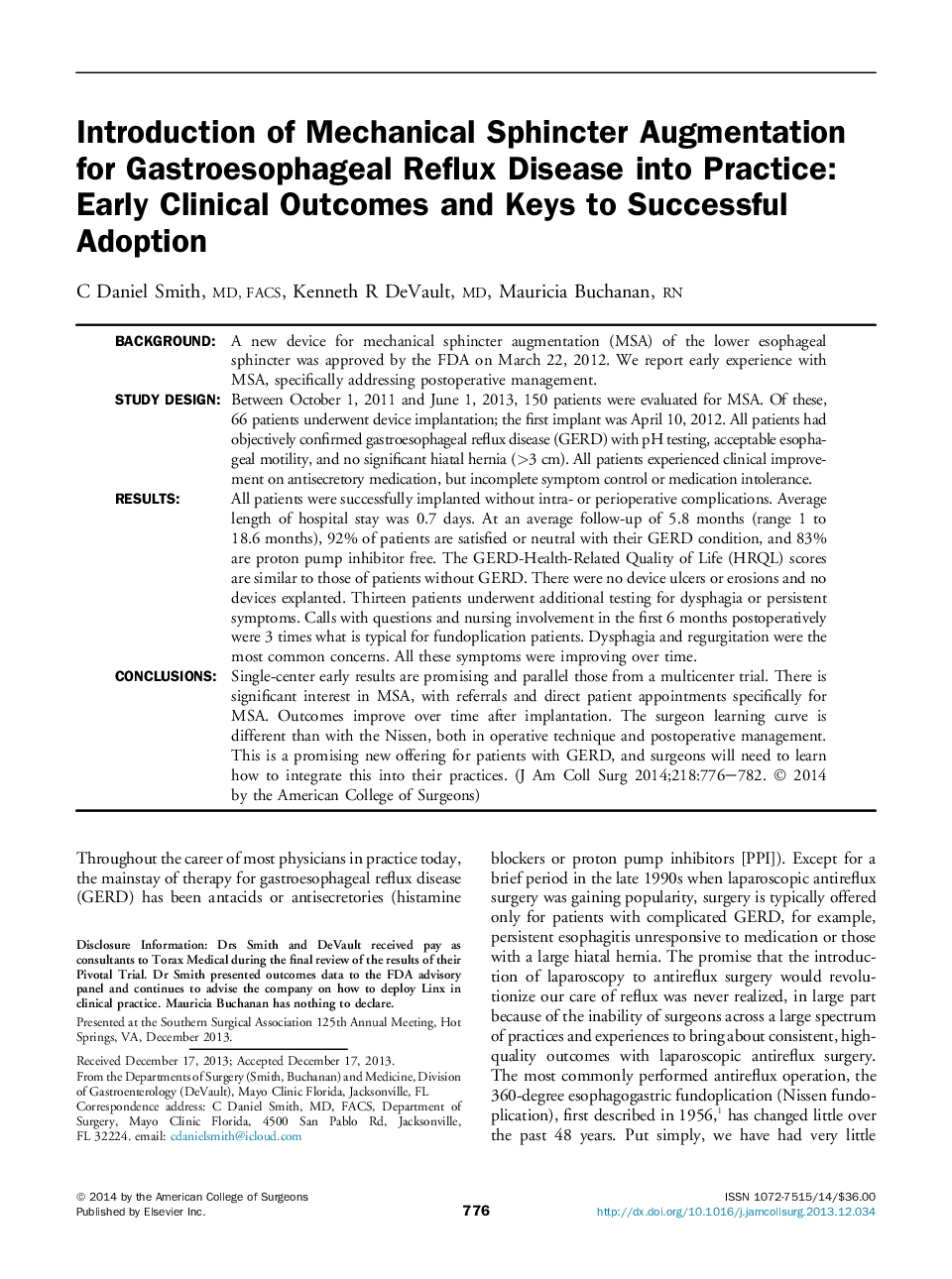| کد مقاله | کد نشریه | سال انتشار | مقاله انگلیسی | نسخه تمام متن |
|---|---|---|---|---|
| 4292195 | 1612235 | 2014 | 6 صفحه PDF | دانلود رایگان |
BackgroundA new device for mechanical sphincter augmentation (MSA) of the lower esophageal sphincter was approved by the FDA on March 22, 2012. We report early experience with MSA, specifically addressing postoperative management.Study DesignBetween October 1, 2011 and June 1, 2013, 150 patients were evaluated for MSA. Of these, 66 patients underwent device implantation; the first implant was April 10, 2012. All patients had objectively confirmed gastroesophageal reflux disease (GERD) with pH testing, acceptable esophageal motility, and no significant hiatal hernia (>3 cm). All patients experienced clinical improvement on antisecretory medication, but incomplete symptom control or medication intolerance.ResultsAll patients were successfully implanted without intra- or perioperative complications. Average length of hospital stay was 0.7 days. At an average follow-up of 5.8 months (range 1 to 18.6 months), 92% of patients are satisfied or neutral with their GERD condition, and 83% are proton pump inhibitor free. The GERD-Health-Related Quality of Life (HRQL) scores are similar to those of patients without GERD. There were no device ulcers or erosions and no devices explanted. Thirteen patients underwent additional testing for dysphagia or persistent symptoms. Calls with questions and nursing involvement in the first 6 months postoperatively were 3 times what is typical for fundoplication patients. Dysphagia and regurgitation were the most common concerns. All these symptoms were improving over time.ConclusionsSingle-center early results are promising and parallel those from a multicenter trial. There is significant interest in MSA, with referrals and direct patient appointments specifically for MSA. Outcomes improve over time after implantation. The surgeon learning curve is different than with the Nissen, both in operative technique and postoperative management. This is a promising new offering for patients with GERD, and surgeons will need to learn how to integrate this into their practices.
Journal: Journal of the American College of Surgeons - Volume 218, Issue 4, April 2014, Pages 776–781
